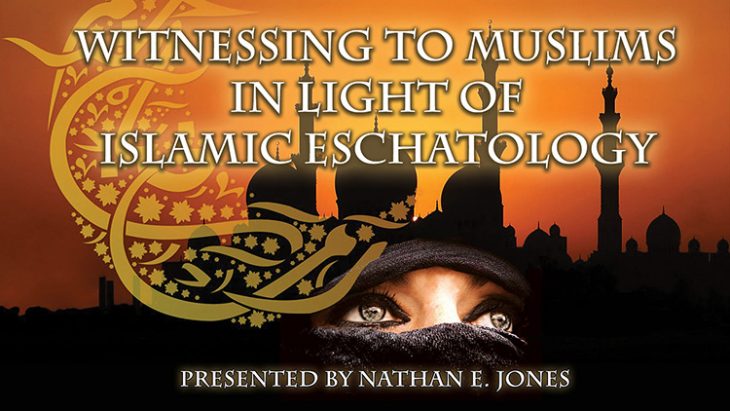In Part 1, we began to get a handle on the history of Islam and its founder. Now we’ll see how Islam views Christianity. Let’s continue this academic presentation by evangelist Nathan Jones!
Video Presentation
Islam’s View of Christianity
It is vitally important that the Christian evangelist understand how Muslims view Christianity, for their understanding of the Christian faith has been convoluted by the teaching of Mohammad and the Islamic imams. They view Christianity through the colored lenses of Islam.
For instance, Muslims believe the Bible as a holy book has been corrupted by Jews and Christians and so cannot be trusted. (Sura 2:75,78-79) Ironically, Muslims are fine with reading the Bible, and in fact, Mohammad endorsed doing so (Sura 5:50,68). But Muslims may be allowed to read the Bible, but they consider it corrupted, so not worth their time reading and will merely dismiss any verses presented to them. This response will require the evangelistic apologist to first point out the biblical claims of being the inspired Word of God (2 Timothy 3:16-17; 2 Peter 1:21).
The apologist can also provide historical and archaeological evidence, such as the existence of 5,300 near-first century copies of New Testament manuscripts and 86,000 references by early Church Fathers, and the Dead Sea Scrolls, which will corroborate the Bible’s authenticity and shows that today’s translations have not been corrupted whatsoever.
Muslims also hold that God is only one being and that there is no Trinity, so that any person who holds to a trinitarian view of God is distastefully viewed as idolatrous. Muslims look at Christians as idolaters. The apologist will point out that the Bible reveals that God is three-in-one, yet co-equal (Mathew 28:19; 2 Corinthians 13:14).
Islam also holds to a Genesis-type story. Mohammad taught that humanity and everything else was created by a blood clot (Sura 23:14). The apologist will then point out that the Bible reveals that by the dust of the earth and the breath of God mankind was created in His image (Genesis 1:26-27; 2:6-7).
When it comes to the doctrine of original sin, Muslims hold that people are born good. Islam even denies that mankind is plagued with a sin nature whatsoever. This flies in the face of Romans 3:23 which reveals that mankind is indeed born in sin and live with a sin nature.
Muslims believe that salvation towards Paradise only comes through submission to Allah and by performing good works. Islam vehemently holds to a works-based salvation. No saving faith nor grace is involved in salvation in Islam, so the Christian account of God’s grace is a very difficult concept for the evangelist to convey.
Interestingly, Muslims do actually hold to a belief in Jesus, whom they call Isa al-Masih. Muslims claim that Jesus is sinless, even though Mohammad ironically had to confess his sins, though this point is debatable within Islamic circles.32 Evangelists can discuss Jesus freely with a Muslim, but they see the Christian account as a corrupted version of what Mohammad clarified.
In the fifth part of this series on Islamic eschatology, we’ll drive down the wild road of Islamic eschatological beliefs.
End Notes
32. Ron Rhodes, Islam: What You Need to Know (Eugene, OR: Harvest House Publishers, 2000).







